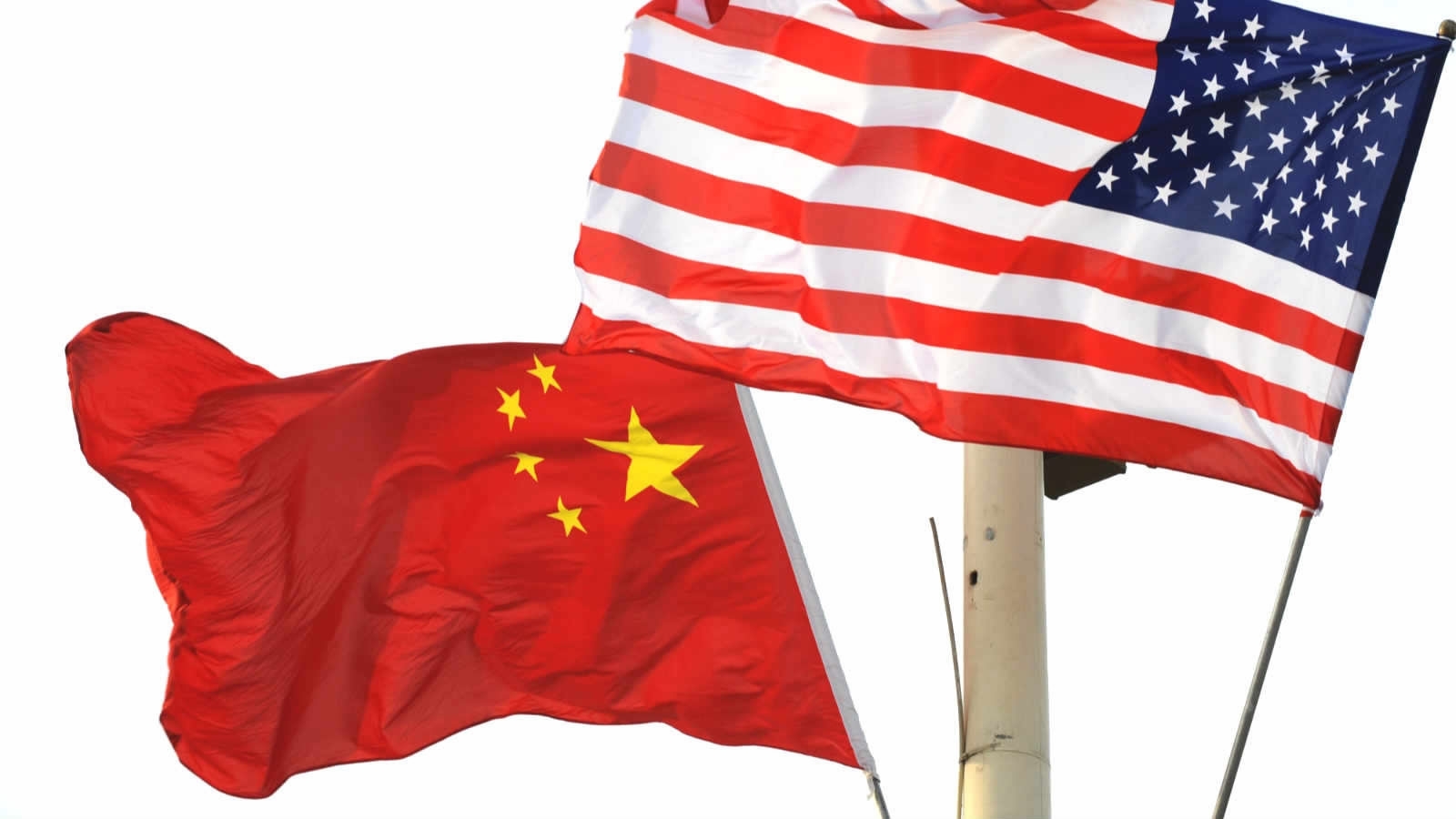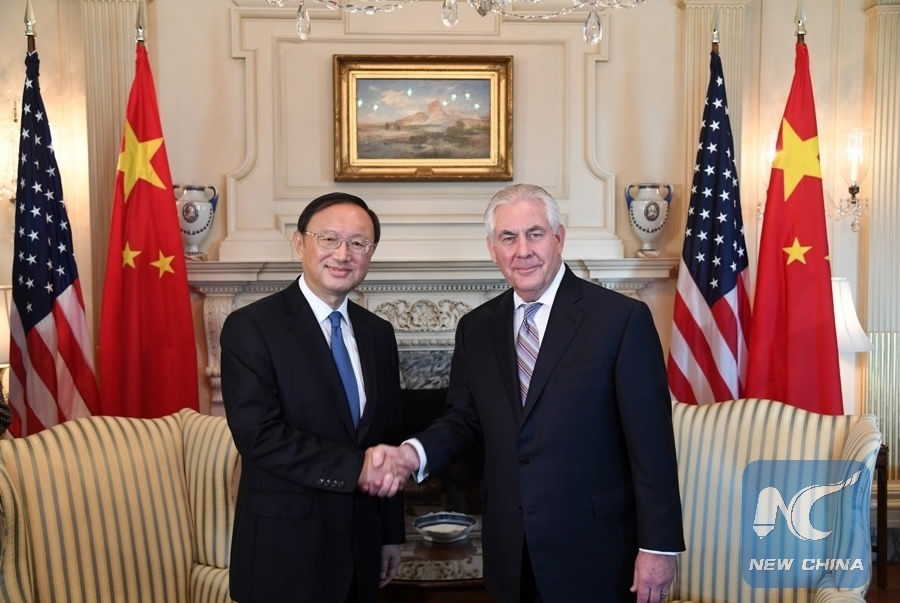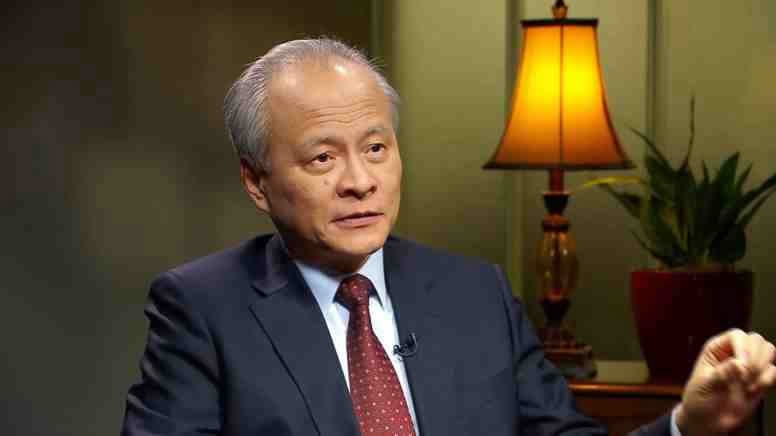
Opinions
15:03, 08-Nov-2017
Opinion: What can we expect from President Trump’s first China visit?
Guest commentary by Li Yong

As you read this article, President Donald Trump might have arrived in Beijing, with grand ceremonies to demonstrate Chinese-style hospitality for the arrival of the president of the United States, the most important nation in the world. Besides the pomp, what else can we expect?
Apart from reciprocating the hospitality shown to President Xi Jinping by President Trump during Xi's US visit, there are other things that will go beyond the usual warm and friendly hosting, revealing more of what will come out of this “historic” visit by President Trump.
Let us not neglect the ground-laying visits by Commerce Secretary Wilbur Ross and Secretary of State Rex Tillerson, who both came to China separately during the last week of September. Both discussed trade and investment issues during their visits, with Tillerson touching on the Korean Peninsula issue.
Yes, trade imbalance has been a problem that President Donald Trump has been vocal about. Other issues raised in the discussions included fair treatment of American businesses in China, IPR protection and market access.

Chinese State Councilor Yang Jiechi (L) shakes hands with US Secretary of State Rex Tillerson during their meeting in Washington, DC, the United States, Feb. 28, 2017. /Xinhua Photo
Chinese State Councilor Yang Jiechi (L) shakes hands with US Secretary of State Rex Tillerson during their meeting in Washington, DC, the United States, Feb. 28, 2017. /Xinhua Photo
The answers from the Chinese side were simple and clear. Li Keqiang, Premier of China’s State Council, responded to the American concerns as follows: “China and the US are each other’s largest trading partner. Cooperation is the mainstream of bilateral relations, and common interests outweigh the differences." That is a truth of facts.
Premier Li Keqiang continued: “Based on the principles of mutual respect and win-win cooperation, China is glad to expand commodity and service trade, and deal with disputes and divergences through dialogues.”
Does this sound like it could be “too official” or lack of substance? These words were said not for the sake of saying them, although these words have been repeatedly said on similar occasions of China-US trade discussions.
The high-context nature of the Chinese language might obscure the true meaning of them. The key words that should be noticed: “Expand commodity and service trade." This is generally in line with the Chinese proposal of a “bigger pie," and the use of “dialogues” here is the means through which the pie can be made bigger.
From the perspective and cultural standpoint of Americans or Western observers, the questions then become: How, when, what, and who? If these questions are put into the context of President Trump’s first China visit, the answers may not be difficult to find. There will be some takeaways, which the Chinese call a “gift pack," for President Trump to take home. China will start to contribute to its share of the bigger pie.
Cui Tiankai, China's top envoy in Washington, said in October that US President Donald Trump's first state visit to China, coming at a "historic moment" after a key Party Congress in Beijing, will be a successful trip with significant outcomes on trade, the Korean Peninsula and other issues.

Chinese Ambassador to US, Cui Tiankai. /CGTN Photo
Chinese Ambassador to US, Cui Tiankai. /CGTN Photo
That should be taken as positive signs of sincerity being demonstrated by the Chinese side, thanks to the hard work to lay the groundwork for cooperation by both sides.
On the American complaints about China’s business environment, Premier Li Keqiang said to his American colleagues that the door of China’s opening up is going to become wider, with the business environment welcoming more American companies to invest and do business here in China.
Perhaps, nothing will happen overnight, but changes in a good direction, more open access and a better business climate are also desired by the Chinese side. They are after all the fundamental transformations that the 19th CPC National Congress is determined to make happen.
At the same time, China also needs a fair and level playing field outside China for Chinese investments and businesses, including in the US.
Li Keqiang expressed his hope to his American colleagues that the US side could give equal treatment to Chinese enterprises, increase exports of high-tech products to China and promote bilateral trade cooperation to achieve more results that benefit people in both countries.
Now, the question is: What are the US friends going to do in return?
China is now at the new juncture of development as defined by the 19th CPC National Congress. As the first foreign president to visit China after this event, China has a lot to share and update with President Trump. There will be both visible and invisible takeaways for him, but the latter is perhaps more important and long-lasting.
(Li Yong is a senior research fellow at the China Association of International Trade (CAIT), deputy secretary general and vice chairman of the CAIT, co-chairing the Center for US/Europe Economic and Strategic Studies. He is also executive councilor at the China Society of WTO Studies (CWTO) and a member of the Advisory Committee for Foreign Economic and Trade Policies of the CWTO. The article reflects the author's opinions, and not necessarily the views of CGTN.)

SITEMAP
Copyright © 2018 CGTN. Beijing ICP prepared NO.16065310-3
Copyright © 2018 CGTN. Beijing ICP prepared NO.16065310-3